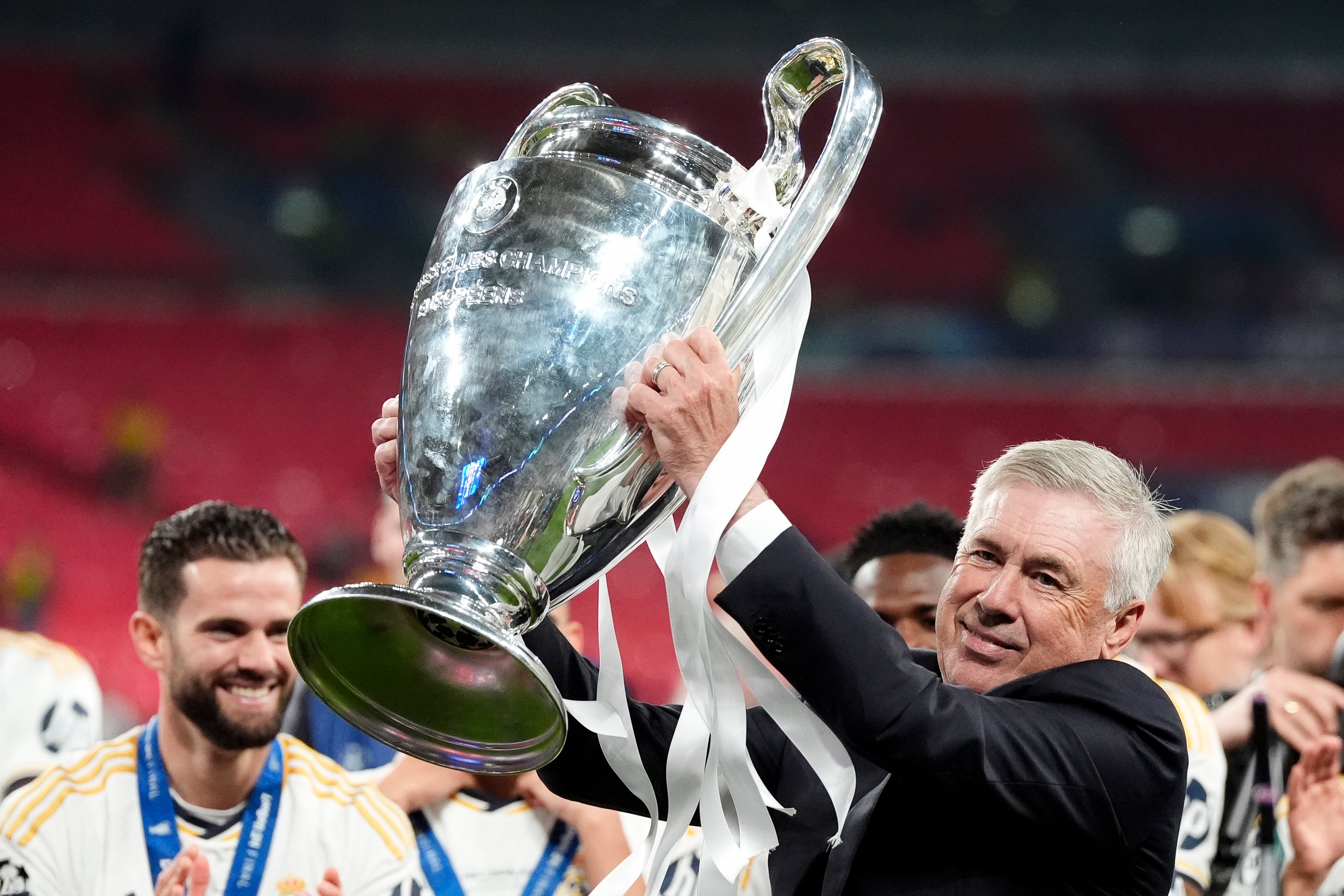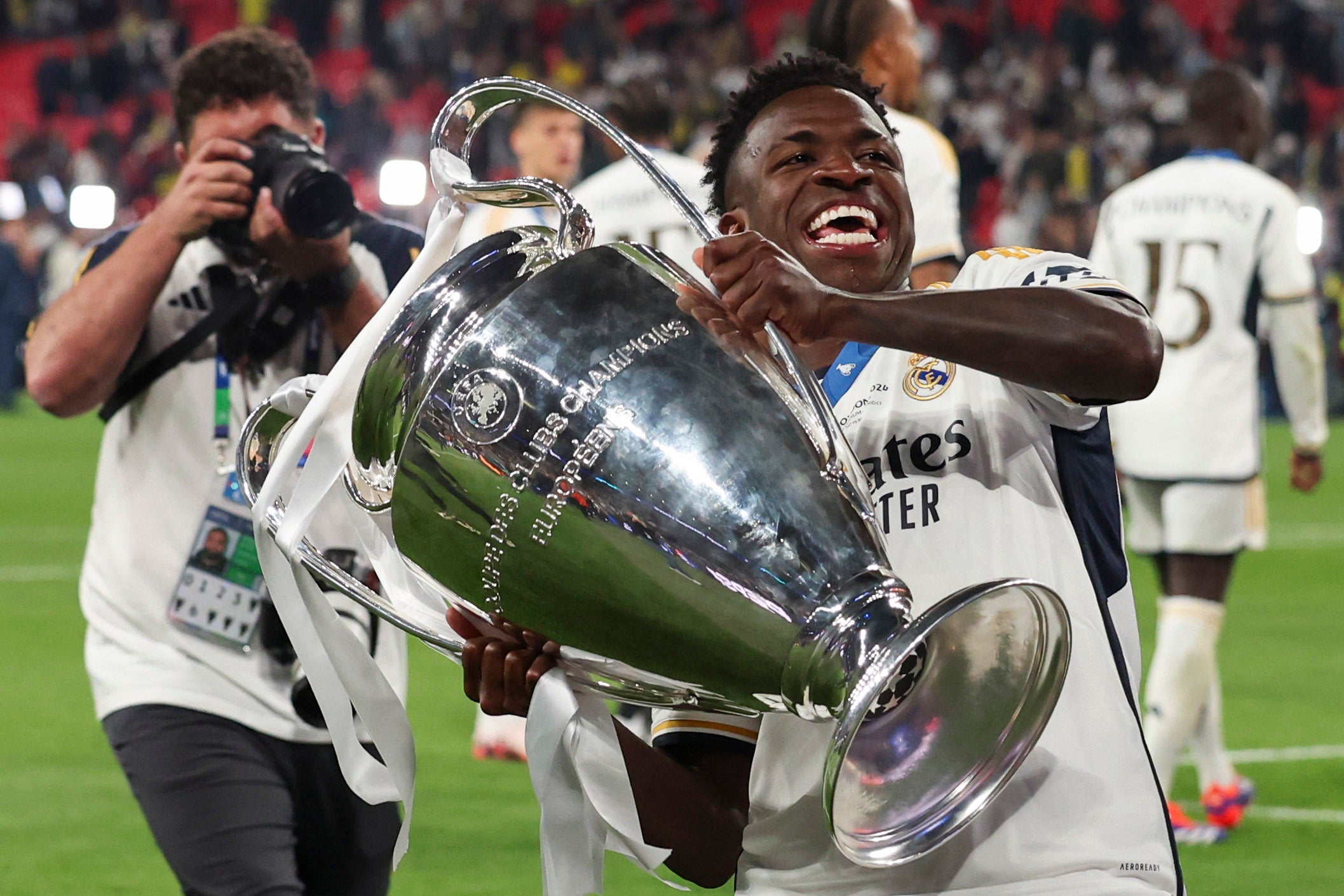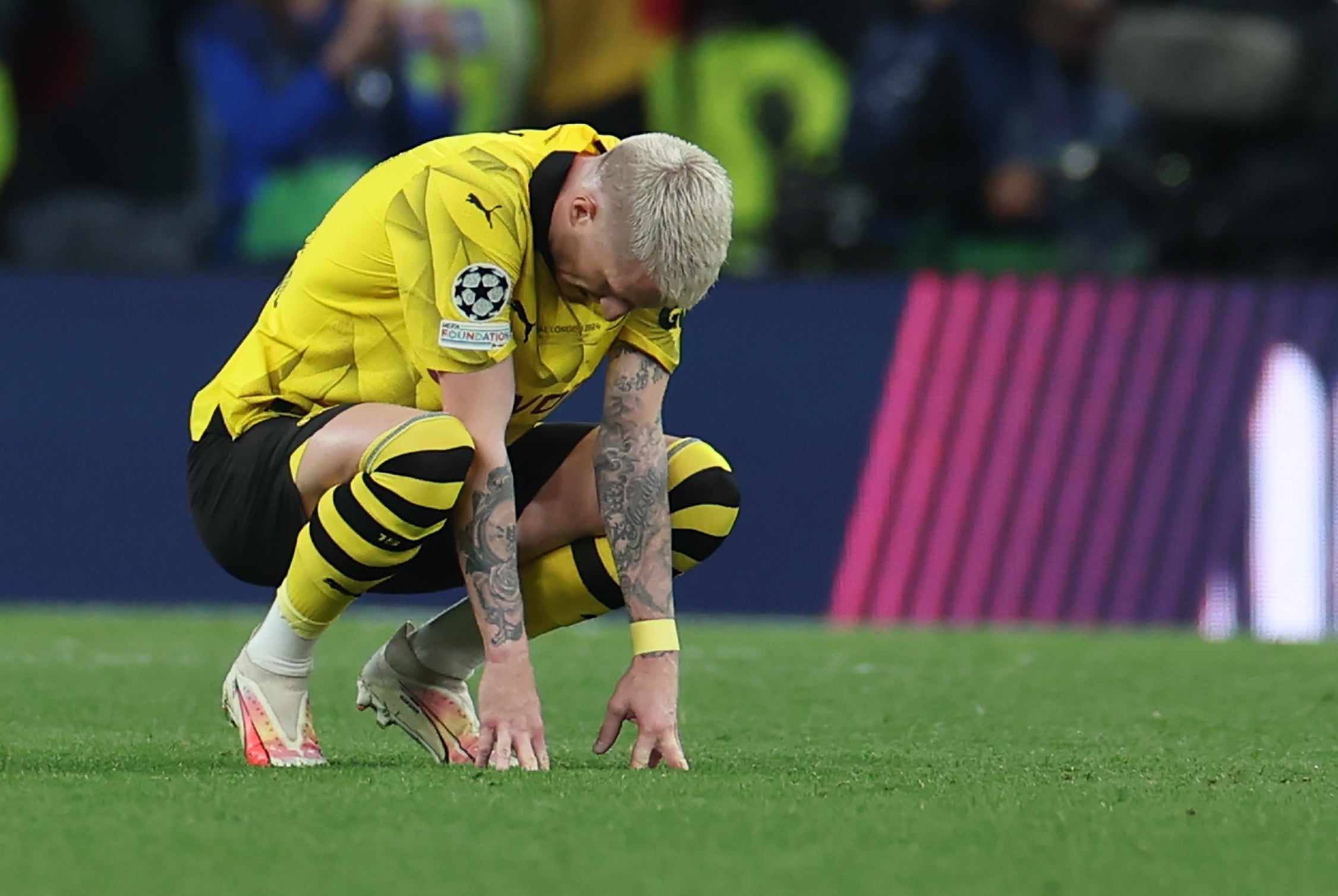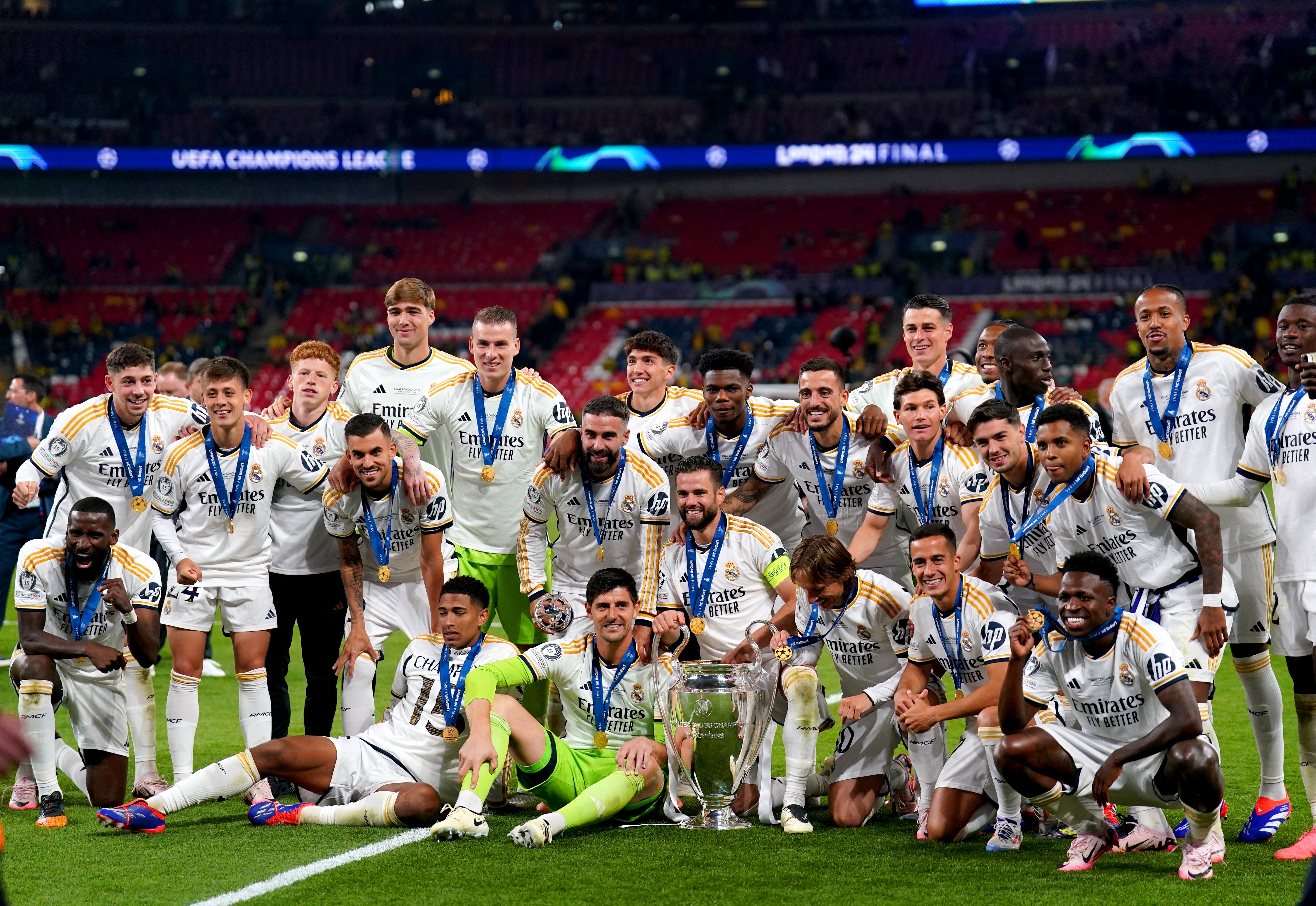Presidential power, managerial magnificence and financial force: How Real Madrid created a Champions League dynasty
Real Madrid beat Borussia Dortmund at Wembley to secure an inevitable 15th European Cup win but as Miguel Delaney explains, the victory only exposed football’s biggest problems and raised questions about its future


As Jude Bellingham looked for his family from the pitch, and Carlo Ancelotti wondered about his cigar, Florentino Perez was already walking to the club car underneath Wembley. There were now official pleasantries to be handled after their Champions League win. He has done this so many times now and the Real Madrid president’s simple response on being asked how it feels said even more than intended.
“Well, we have one more Champions League than we had before.” Stirring stuff...
There was a touch more romance when Perez described Real Madrid and the Champions League as an “everlasting love”, except we all know what weighs over that. They love it but want to destroy it. As recently as Monday the proposed European Super League – an entity essentially representing his views – were celebrating a “victory” from a Spanish court case where they actually won nothing.
Madrid instead had to satisfy themselves with another Champions League win that, admittedly, wasn’t a bad consolation. This is now going to be the tension that runs through every celebration, especially since everyone around the club talks about their illustrious history so much.
When match-winner Dani Carvajal came out for his press conference, he was asked about club legend Paco Gento – whose record of six European Cups he and Luka Modric had matched – more than anything else. This even extended to what Gento had said to him over the years and whether he “felt like a legend”.
Ancelotti came out minutes later to celebrate his record of five European Cups as a manager, which is surely something never to be surpassed. It is two more than those next on the pantheon, with Bob Paisley, Zinedine Zidane and Pep Guardiola having three each. Guardiola is desperate to win the most Champions Leagues in history but he is already talking about leaving Manchester City next year.


There is something striking about these bare numbers. Zidane’s three medals all came in Madrid’s three-in-a-row from 2016 to 2018, which were bookended by Ancelotti’s own victories in 2014, 2022 and 2024. As enjoyable as it is for everyone to enthuse about the Italian’s unique abilities and man-management greatness, there is clearly something more than singular coaching influence. It isn’t like Ancelotti produced this level of overperformance during spells in charge of Everton, Napoli or Bayern Munich. That isn’t intended to spitefully criticise someone who has done something very special but rather to explore what is really happening here.
There is obviously something bigger, as was discussed before the game, from Perez seeking to influence the financial order of European football for decades to the way they have perfected modern recruitment.
Five of the starting XI in the victory over Borussia Dortmund joined Madrid as teenagers. They have not just developed into stars but into a team that knows exactly what it is doing regardless of the situation. Ancelotti fits that perfectly, and that's where his man management makes such a difference. He was exceptionally calm at half-time, even as Dortmund dominated the opening 45 minutes
There was none of the anxiety that afflicted even Barcelona even in their own imperial era. So many of Guardiola’s games came down to the tautness of that high defensive line. A certain neurosis never went away. So, even though Barcelona probably had the greatest player of all time in Lionel Messi, they won ‘just’ four Champions Leagues with him.
Of course, that’s still a record virtually every other club in Europe would dream about, yet for Madrid, it is something they managed in the space of a few years, as part of something grander. Hence Perez can so airily talk about having one more European Cup than he did before. How Borussia Dortmund – or, specifically, the departing club legend Marco Reus – would have loved just one medal. And that is a club who are the 12th wealthiest in Europe. It says much about the current financial landscape of the game and says even more that everyone knew how this game was going to go.

There was nothing unexpected about it, right down to Dortmund’s early chances.
For Madrid, who have made winning Champions Leagues par for the course, this was simply them going through the motions. They started with uncertainty, dug in, and eventually did what they always do – win.
That is an issue for the Champions League itself, in the same way that Manchester City so frequently winning the English title has become an issue for the Premier League. It isn’t supposed to be this predictable.
This is European football’s showpiece event, its intended sense of spectacle emphasised by a pre-game music show that few match-going fans want. Dortmund fans booed Lenny Kravitz off the Wembley pitch. And yet the game itself was the equivalent of any random La Liga game. It didn’t feel as epic as it should, due to the chasm between the teams.
And, again, if that happens to a club of Dortmund’s size, what does it say of everyone else?

The foundational reason for this is financial disparity but, rather than address that, Uefa are sidestepping it. They are indeed changing the competition, but it is likely to only serve the biggest clubs by giving them more games in this expanded group stage before a seeded knockout.
Madrid, however, are also changing.
After almost a decade of eschewing galactico signings and constantly buying young players they develop into stars, they are just going out there and bringing in the world’s best player on a massive wage.
Even Bellingham nodded to Kylian Mbappe’s eventual arrival while expressing a knowing smile. “Tonight, the only little thing we were missing was that clinical (number) nine. And if he was to come, and give us that, we'd be in a really great place and he'd take us to another level.”
Even though this signing has long felt more inevitable than even Madrid winning a Champions League, some within the club have commented that it represents a deviation from recent philosophy. The retort from senior figures is instructive: “It’s what the president wants”.
Join our commenting forum
Join thought-provoking conversations, follow other Independent readers and see their replies
Comments
Bookmark popover
Removed from bookmarks